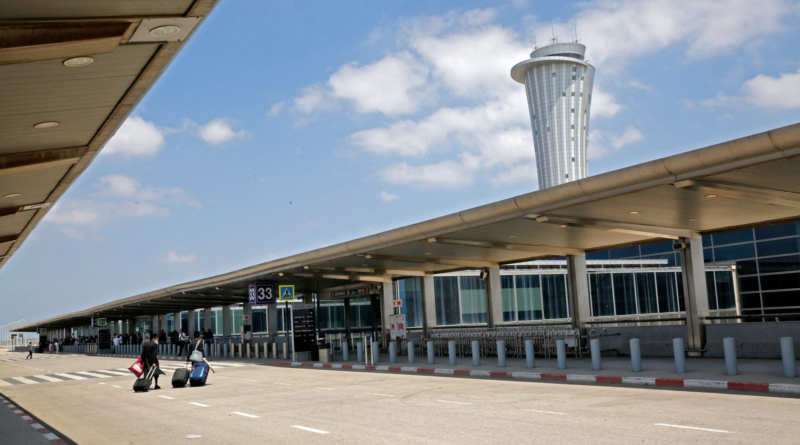Airline exodus leaves Israelis and their companies isolated
Israel’s war against Hamas has sparked boycotts against its authors, cut cooperation with its scientists and raised possible arrest warrants against its officials. But nothing has made Israelis feel more isolated than the massive drop-off in flights to and from the country.
Direct routes to dozens of major cities — Washington D.C., San Francisco, Toronto, Hong Kong, New Delhi — have been suspended, reducing face-to-face business meetings as well as cargo reliant on passenger flights.
Of the 20 airlines that dominated the market before the war, Israeli companies are nearly the only ones remaining. The number of planes and passengers into Ben Gurion Airport fell by 40% in the first nine months of 2024, according to the airport authority.
The biggest impact is from the loss of North American airlines — Delta Air Lines Inc., United Airlines Holdings Inc., American Airlines Group Inc. and Air Canada. Although Ben Gurion hasn’t had a missile land on it, the companies say they fear for the safety of their passengers as rockets are fired from various directions, and crews are unwilling to spend the night in Tel Aviv.
With the war in its 14th month and no end in sight, Israel’s high-tech leaders, faced with declining investors and business activity, are seeking solutions. One, scheduled to begin in January, is called Airtech, and aims to establish charter flights three times a week to and from the US.
“Our project is simple,” said Ori Hedomi, former chief executive of Mazor Robotics and veteran entrepreneur, who’s helping create the plan. “We will lease planes to travel from Israel to the US and back, including all logistics. To do business you need to meet partners face to face. You must cultivate relationships.”
Another work-around comes from a tiny firm called Air Haifa which now flies the half-hour hop to Cyprus six times a day, facilitating connections to the rest of the world.
The flight woes began right after Hamas attacked southern Israel 13 months ago, joined to the north by Hezbollah, resulting in thousands of rockets. Israel launched retaliatory wars in Gaza and Lebanon and exchanged fire with Iran.
Foreign airlines called it quits, then started up, then stopped again as military action waxed and waned. Airlines are postponing their return for weeks or months and, in some cases, indefinitely.
This has set back Israeli aviation more than a decade before the “open skies reform” of 2013 which brought dozens of airlines to operate in Israel as the country gained in wealth and sophistication.
That coincided with Israel’s improved regional relations, including diplomatic ties with several Arab countries. Most of that has been reversed. Turkey, once a hub for flights to Tel Aviv, is boycotting Israel. There’s no longer direct access to Jordan, Egypt, Morocco or Bahrain or to dozens of cities in Greece, Italy and Eastern Europe.
The biggest beneficiary is El Al Israel Airlines, the national flag carrier, which is adding flights and avoiding cancellations. The best performing airline in the world this year, it doubled its market share to 46% in September 2024 year-on-year and reported a net profit of $228 million in the first half of the year, up by a factor of eight from the first half of 2023.
In it’s third quarter financial results, published Wednesday, El Al said it maintained an 86.4% market share for trans-Atlantic flights. It reported a net income for the quarter of $185.2 million, more than triple its net in the same period last year.
Its reliability has come with a steep cost to consumers.
“Flight prices are up 50 to 200% and in some cases 300 to 400%,” says Hanny Sobol, the CEO of Diesenhaus Group, a travel agency, adding that seats are scarce.
Shipping costs are also affected. Amir Shani, the owner of Israeli air forwarder Amit and head of an air forwarders’ association, says this is due to a growth in reliance on passenger planes for the transfer of cargo. Pre-war, over half the cargo in Israel was on passenger planes.
“Aerial shipping costs have surged by some 250%,” Shani says. That has made slaying inflation much harder.
Supply constraints have tripled delivery times, says the CEO of a dental implants factory in northern Israel who asked to remain anonymous discussing business matters. He said that’s decreased sales and damaged the company’s cash flow.
International airlines say one thing keeping them away from Israel, especially during war, is a law that requires them to compensate passengers and offer alternatives for canceled or delayed flights.
Many airlines represented by local law firm FBC & Co say in a position paper that when alternative flights are so limited, their prices soar.
“Foreign airlines are forced to deal with potentially significant economic consequences, and in the absence of a clear change in the relevant legislation, they lack incentive to resume operating their flights in Israel,” the group told lawmakers.
There is concern that some airlines may not come back. The group has told Parliament, “If there is no advance planning for the summer season, aircrafts will be assigned to other destinations. Therefore, to avoid at least another year of collapse of the Israeli aviation industry, bold and swift action must be taken.”



